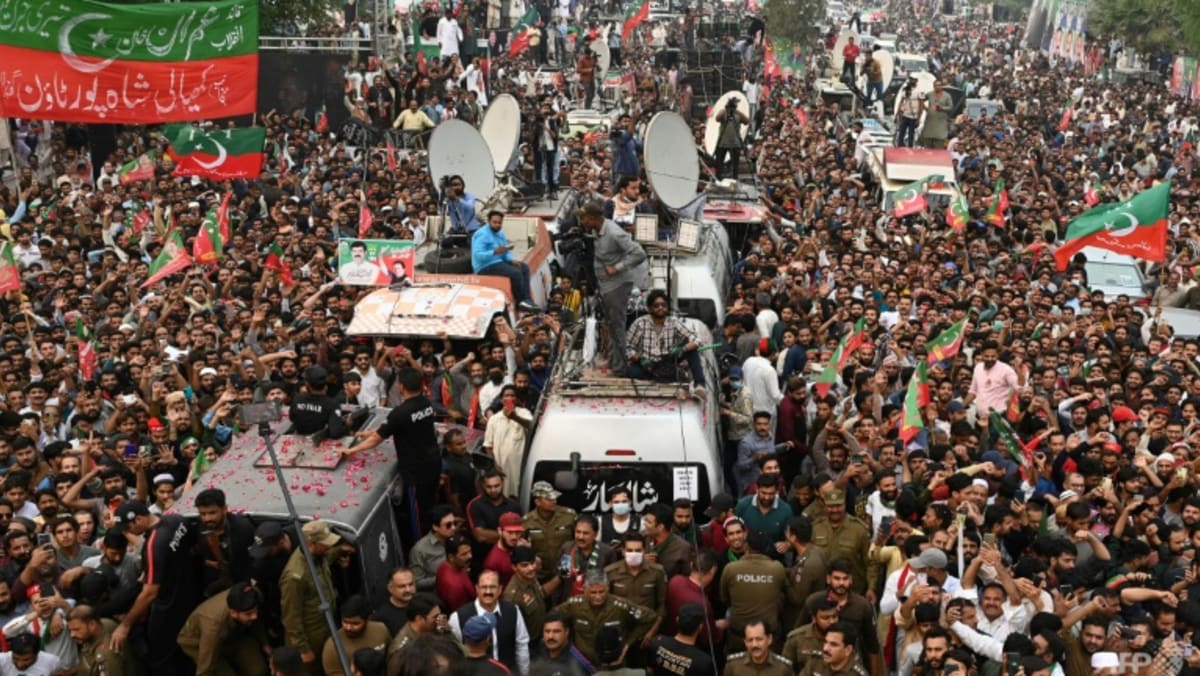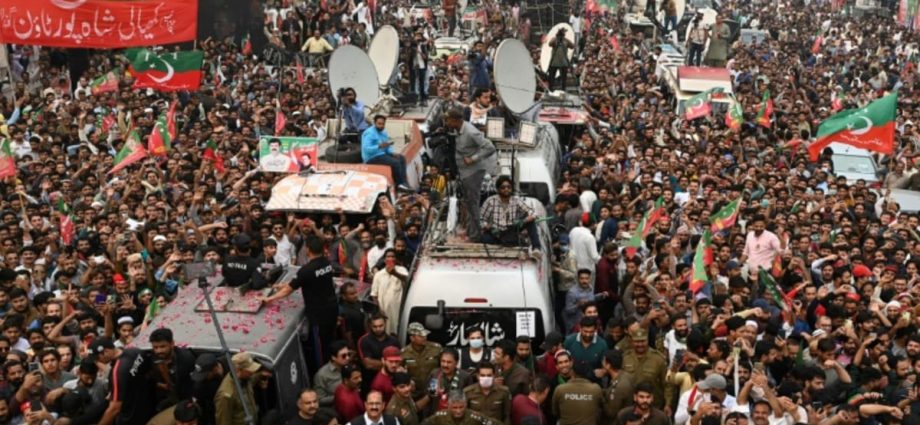
WRATH OF KHAN
Khan took to politics as a reformer, founding his Pakistan Tehreek-e-Insaf (PTI) party in 1996 as a stand against corrosive corruption and the dynastic families which have historically held power.
For years, he was the party’s only national MP, but by 2013 PTI was a genuine opposition force which won the largest share of seats in the 2018 election.
After three-and-a-half years as prime minister, Khan was ousted in a spring no-confidence vote as the economy crumbled and he lost the support of all-powerful army leaders, considered Pakistan’s true powerbrokers.
The government which replaced him, however, has been bruised by further economic free fall, and the cobbled-together coalition that ended his tenure has made him seem potent by comparison.
“He was great when he was in power and he is great even now,” insisted 52-year-old supporter Basharat Ahmad, a PTI scarf draped around his neck and a bedazzled party broach pinned to his chest.
Since losing power, Khan has been fettered by corruption allegations and a series of complex legal cases, a frequent hazard in Pakistan where rights groups say the courts are used to stifle dissent.
The long march is Khan’s riposte, designed to shore up support and heap pressure on the government led by Prime Minister Shehbaz Sharif.
Every day, he mounts a container encasing an air-conditioned green room, climbs a spiral staircase past a mini-fridge stacked with mineral water and emerges on his mobile lectern where supporters shower him with petals.
As the contraption crawls forward, Khan points to the sky and touches his heart as his entourage ducks under overhead power lines and traffic lights, and a smattering of fireworks pops off above.
He uses a fuzzy sound system chained to the truck to repeat his talking points to domestic TV crews, hovering drones and the fawning crowds.
But it is less of a manifesto and more of a litany of grievances.

